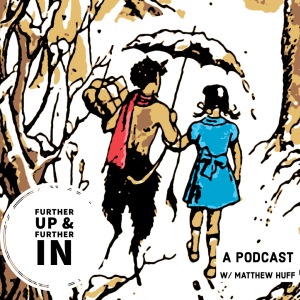 I am sure with a recent post of mine from last November riffing off a scene from Mary Poppins, many of you may be thinking a second one would simply be milking it.
I am sure with a recent post of mine from last November riffing off a scene from Mary Poppins, many of you may be thinking a second one would simply be milking it.
Well, here goes.
First, Mary Poppins may very well hold the top seat in my list of favorite movies. It is one of the most finely crafted films I’ve seen, certainly Disney’s best. Mixing pathos, charm, depth, and the right sort of Dickensian atmosphere (though the film is set in 1910) with Dick van Dyke and Julie Andrews at the helm is simply remarkable. Add to that a medley of film’s most iconic moments (tea parties on the ceiling, jumping through chalk pavement pictures, merry-go-round horses in the derby, the bird woman at St. Paul’s) and best lines (“Posts, everyone!”, “Kindly do not cloud the issue with facts”, “A wooden leg named Smith”) and you’ve got the makings of a masterpiece. Mary Poppins is the film that is at once both familiar and new, timeless and exciting. It is the only film I know of that allows its audience to feel like Mr. Banks and Michael Banks simultaneously – to be steeped in the wildness of childhood and burdened by the cages of adulthood in the course of two hours. It is a charming and delightfully fresh world that we have somehow always known.
One scene in particular has struck me recently as I have been watching it with my girls over the past few weeks. As Mary Poppins arrives at 17 Cherry Tree Lane and makes her way through the nursery, Jane and Michael spot her rather cumbersome carpetbag (“You mean to carry carpets in?” “No. Made of.”). Yet, as she places the bag on the table and begins to unpack, the children are bewildered by what lies inside. Though neither Jane nor Michael can see anything in the bag, Mary Poppins pulls out a mirror, a floor lamp, several articles of clothing, and her famous tape measure.
It’s quick and subtle, but Jane and Michael have a short exchange that is, in its own way, quite revealing:
Michael: “We better keep an eye on this one. She’s tricky.”
Jane: “She’s wonderful!”
In this moment, I can’t help thinking if their response to Mary Poppins is the same sort of response the world has to the miraculous glory of Christ. Many may look at the gospels, hear accounts of healings and resurrections, and come to the same conclusion. This man is tricky, claiming to be the Messiah. He’s a charlatan, an illusionist, a sorcerer, a mere carnival barker if anything at all.
We better keep an eye on this one.
Surely no one can take seriously stories of a Jew walking on water, calming storms, and raising the dead. It’s a trick that the Pharisees and other Jews kept an eye on, even to His death.
Yet, there was a remnant that believed Jesus was not tricky, but wonderful. Though they (and I) cannot explain how He accomplished all that He did, the beauty of Jane’s response is the beauty of childlike faith. She did not have to figure Mary Poppins out. She did not belittle her position by assuming she was devious or false. She simply chose to submit herself to the enchantment of a charming mystery.
And so must we. It is not for us to “keep an eye on” God. We must simply open ourselves to the grand delight of a God who has come to fix everything, regardless of whether or not we can explain how He did it. As Jesus said in Matthew 18:3,
Truly, I say to you, unless you turn and become like children, you will never enter the kingdom of heaven.
In their own way, Jane, Michael, and even Mr. Banks needed a nanny to swoop down from the clouds and fix all their chaos with a spoonful of sugar, someone to “turn bread and water into tea and cakes”, and in a very meaningful way, so do we. What’s more is that we, like the Banks children, must decide whether this savior is evil or good, wrong or right, tricky or wonderful.
I side with Jane.

 I am sure with a
I am sure with a